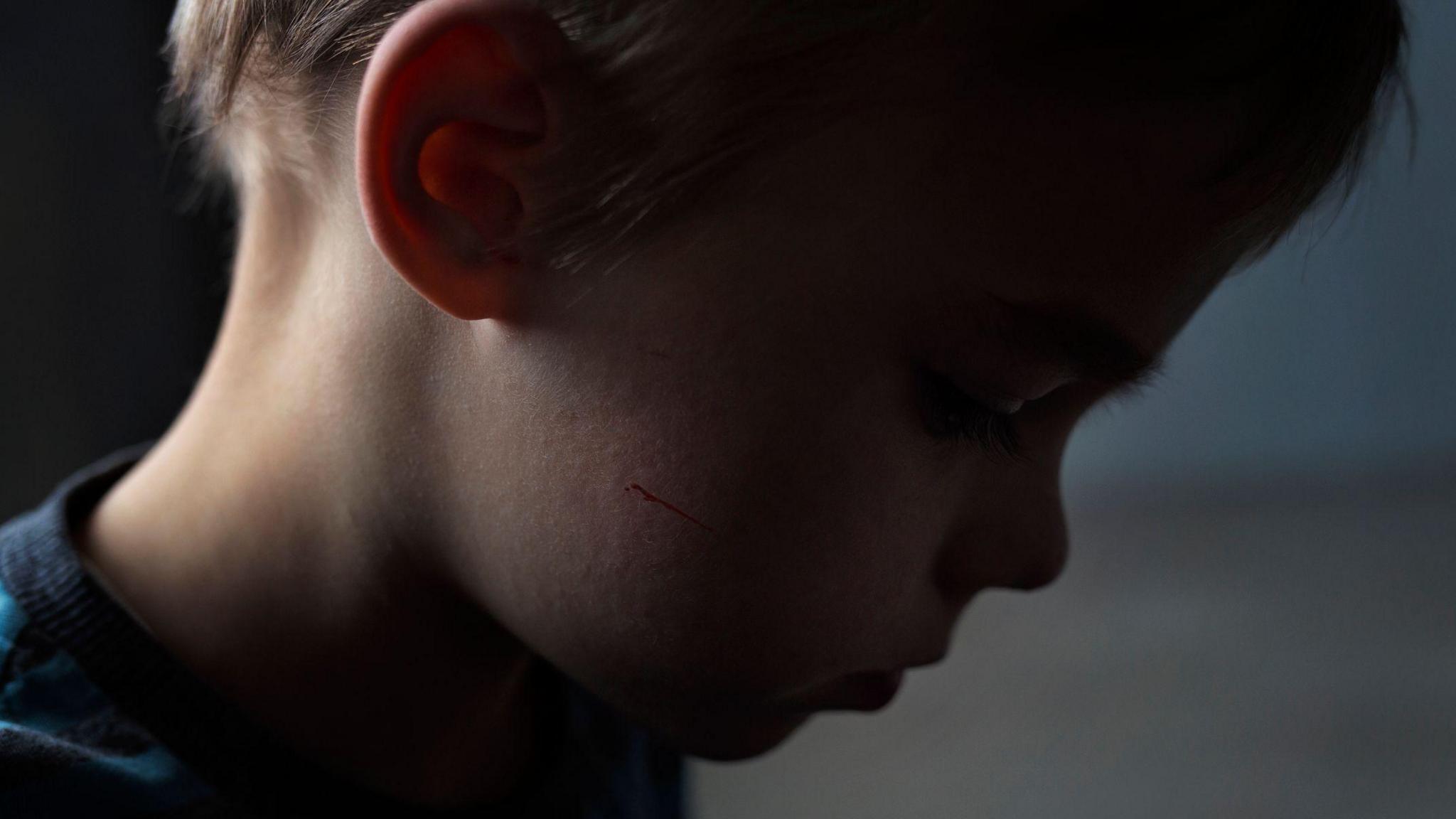Abused child who 'did not want to see world' went blind

A review found that the child had grown up with exposure to domestic violence
- Published
A child kept one hand over their eye for so long they have permanently lost the sight in it, a report into their care has found.
Psychologists believe the child in north Wales did so in response to their "chaotic" and "violent" life at home and that the child "did not want to see the world through that eye".
The child, who cannot be identified for legal reasons, was taken into the care of a local authority and is now attending school, but health experts still do not know what the long term effects of the abuse will be.
The details have been highlighted in a report by the North Wales Safeguarding Children's Board.
Boy, three, gets 'magic eye' after cancer surgery
- Published10 April
Pupils with same cancer become best friends
- Published30 November 2024
No care plan for teen who died of 'shocking neglect'
- Published14 March 2024
The child lost sight in one eye due to Deprivational Amblyopia.
The report stated that light was prevented from entering and being focused on the eye due the child continuously holding a hand over the eye.
The review into the case, described as "unusual" by the agencies involved, looked from when the child was first identified as being at risk in January 2020 to when the child was placed into care in September 2021.
The child, according to the report, had grown up in "poor living conditions," with "exposure to domestic violence and anti-social behaviour where the police were regularly present".
There was a lack of sufficient bedding and food in the home with flies present throughout.
The report, published earlier this year, found that the family were well known to several key agencies and the police regularly shared reports with social services, but "the number of reports and the regularity of issues appeared to be minimised due to the familiarity with the family".
During the pandemic a paediatric psychologist established a behaviour modification plan, which the child responded to "positively" in school, but the report found it failed to be implemented when the child was not taken to school consistently.
Concerns from health professionals about a lack of progress were not escalated, says the report.
The authors note that "the mother's failure to meet the child's needs should have been considered as medical neglect".
The review found that the mother "felt that the child was let down by services as they were unable to stop the damage to the child's eyesight".
When asked what could have helped, the mother said that she had very little support from her family, and it would have been better if her family supported her.
After the child was taken into care a "learning event" meeting was arranged, attended by seven agencies, which emphasised "how unusual this child's case was for every agency".
For one consultant ophthalmologist it was the "first time" they had come across a case of this kind in a career spanning 40 years.
Missed appointments
Crucial appointments at hospital were regularly missed, according to the review, resulting in a "significant effect on the child's eyesight".
However, because the missed appointments were not all at the same location the number of "Was Not Brought" appointments - as opposed to a different category of "Did Not Attend" - failed to trigger a safeguarding response in line with Betsi Cadwaladr University Health Board (BCUHB) policy.
The report's authors believe "the continued reliance within [the health board] on paper recording being filed manually was a hindrance in collating the broad spectrum of 'Was Not Brought' to appointments".
The report found that "missed health appointments across all of BCUHB departments should be collated centrally and treated accumulatively".
Angela Wood from BCUHB said she was "deeply saddened" by the "heartbreaking case of abuse".
"It is recognised nationally in NHS Wales that there is a need to move away from paper records to modern digital systems and join them up," she said.
"Since this report was published in January 2025, we have reviewed our Was Not Brought/Did Not Wait policy and we are looking at additional measures to inform and educate practitioners of the importance and impact of a child not being brought to an appointment," she added.
A North Wales Police spokesperson said it takes an active role in child safeguarding reviews and adopts any "learning outcomes", while according to the report social services involved have reviewed their processes.